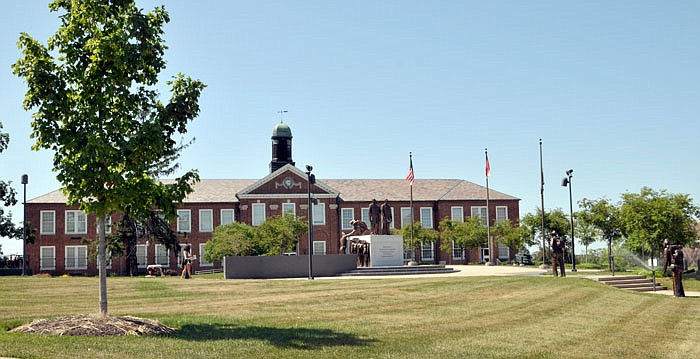New Lincoln University students won't be able to earn a history degree or a degree in music education or sacred music.
LU's curators voted 4-2 Monday to end those degree programs, along with the two-year associate's degree Lincoln offered in early childhood education, after a nearly 75-minute discussion during a conference call.
The music and early childhood degrees were eliminated immediately.
But the history degree was "deactivated," creating a three-year wind-up period before the program is cut, giving students already enrolled a chance to finish the program and graduate with the degree.
"That means we won't offer it on the books, so we can't recruit students for those programs," President Kevin Rome explained after the meeting.
"Deactivation" also means the three-year period can be used to develop new classes that might be more attractive to future students.
"The hope is that, during the restructuring period, our history program will develop a new program that will interest those students and that we don't lose history," Rome said.
"That would be ideal - if we are unable to do that, there may be some students who choose to transfer to another institution, if there's a specific major that they are seeking."
Rome told the board the proposal to end four programs - out of 11 reviewed - was "a difficult situation to be in, but as we move forward, I think it's important for everyone to know that we are focusing on the future of Lincoln University."
He also reminded curators that Lincoln isn't alone in considering questions about course offerings, later telling the News Tribune: "I think more institutions are looking at making sure that they're offering majors that will be beneficial to the students and where the jobs are.
"We have to be more accountable and make sure that, when a student graduates, that there is employment available to them and that they're able to justify the costs of their education."
Said Sewell, LU's provost and vice president for academic affairs, told the board the recommendations were based on three primary reasons - low graduation numbers over the last five years, prospective students' low demand for a program and low regional or national career demands for the program.
Curator and LU alumnus Greg Gaffke opposed the history degree change, noting: "Our university is based on a lot of history."
And several other area colleges - including Westminster College, William Woods University, Stephens College and Columbia College - still have history programs, he said.
"Our regional competitors are maintaining the traditional liberal arts curriculum because they understand that some things do not go out of fashion," Faculty Senate Chair Bryan Salmons told the News Tribune.
"They are an essential part of being an educated person in the world."
Salmons, an LU English professor, said he was disappointed with the board's decision, calling it shortsighted, and it "will prove, ultimately, destructive to our mission."
Sewell explained the programs had been subjected to a methodical review by the faculty of each of the programs and by a separate panel of senior faculty members.
"I think the committee process that was used, to the extent that we all saw the results, worked fine. But what was obvious in this case was that the committee's recommendations were overridden and ignored," Salmons said.
"Every single person I talked to who was on that committee said the same thing - we made a recommendation for no changes.
"So, this is the administration acting, in essence, alone."
Curator Frank Logan asked if LU had done enough to promote the programs targeted for cuts, and Curators President Marvin Teer wondered if the board should set the school's long-range goals before making program changes.
But Curator Winston Rutledge, another LU graduate, said he was comfortable with the review process and the proposed changes.

